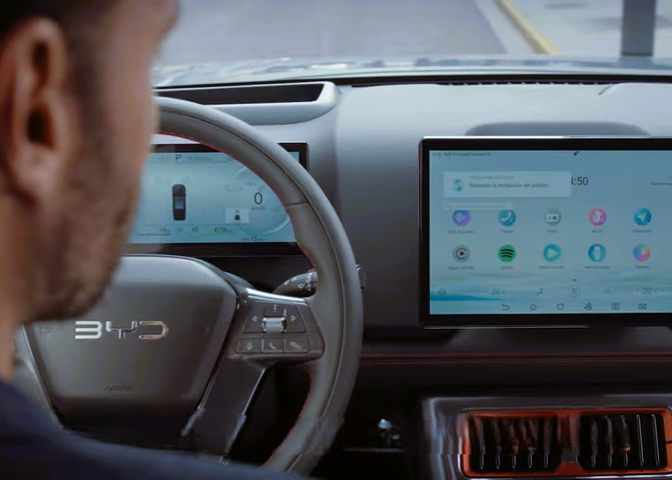GadgetWheels
BYD unveils advanced driver system
The DiPilot 100 can achieve over 1,000 kilometers of auto-piloting without manual intervention.
Gobal electric vehicle (EV) leader BYD has unveiled one of the most advanced driving systems in the world.
The DiPilot Advanced Intelligent Driving Assistance System (DiPilot System) comprises three distinct versions, including DiPilot 600, featuring a triple-LiDAR setup; DiPilot 300, equipped with a single LiDAR unit; and DiPilot 100, utilising a tri-camera setup, implemented across BYD models.
The lineup is aimed at making high-level driving assistance accessible to all consumers.
Notably, the DiPilot 100 system is equipped with a front-facing tri-camera 5R12V sensing hardware and an end-to-end control algorithm, marking significant advancements in architecture, sensors, algorithms, and data. The system provides much-needed functions in scenarios that consumers care about the most.
For highways and urban expressways, the High-speed Navigation On Autopilot (HNOA) can follow the navigation path to complete tasks such as entering/exiting ramps, lane keeping, cruising, autonomous lane changes, and avoiding/bypassing certain obstacles.
The Automated Valet Parking (AVP) system can achieve convenient functions like drop-off and go, auto park after lock, based on users’ parking habits and various driving scenarios.
Memory Navigation On Autopilot (MNOA) is suitable for high-frequency travel routes such as commuting, providing multiple vehicle functions like automatic stop and go at traffic lights, passing through complex intersections, automatic overtaking, full-scene bypassing, and negotiating lane changes.
“BYD focuses on usage scenarios of the greatest concern so that every consumer can enjoy the safety, comfort, and convenience brought by BYD’s technology,” says the manufacturer.
Safety – cornerstone of intelligent driving
Under HNOA, the DiPilot 100 can achieve over 1,000 kilometers of auto-piloting without manual intervention. Its Automatic Emergency Braking (AEB) function can reliably stop at speeds up to 100 km/h, with plans to gradually extend this capability to 120 km/h and 140 km/h. The AVP system boasts a success rate of 99%, ensuring rapid decision-making in emergencies to prevent accidents.
With over 5,000 engineers dedicated to the field and a vast vehicle-cloud database covering over 4.4-million vehicles equipped with L2 level ADAS, BYD says it is capable of leading the transformation and popularisation of intelligent driving.


















